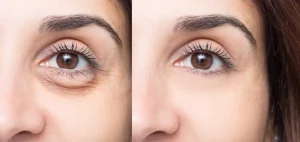Ozempic, a popular medication used to manage type 2 diabetes and promote weight loss, has gained significant attention for its effectiveness. While its benefits are well-documented, some patients have raised concerns about unexpected side effects — including hair loss. Although hair loss is not officially listed as a side effect of Ozempic, individuals have reported experiencing thinning hair while on the medication. This has left many wondering whether Ozempic is responsible or whether other factors may be at play.
Understanding the possible link between Ozempic and hair loss is crucial for those using the medication. Factors such as rapid weight loss, nutritional deficiencies, and underlying health conditions may contribute to this issue. Identifying the cause and exploring effective treatments can help manage hair loss and support overall well-being.
For those experiencing hair loss concerns, Dr. Syra Aesthetics and Longevity Institute offers expert care and personalized treatment solutions. Dr. Syra Hanif M.D., offers a range of effective solutions for hair loss, including PRP (Platelet-Rich Plasma) therapy to strengthen hair follicles and encourage natural regrowth. Known for her compassionate care and commitment to patient satisfaction, Dr. Syra Hanif has built a strong reputation for delivering outstanding results. Patients trust her expertise and individualized approach to achieve healthier, fuller hair while enhancing their overall well-being.
Key Takeaways
Ozempic is mainly prescribed for adults with type 2 diabetes to help manage their blood sugar levels and support weight loss. It is not directly linked to causing hair loss.
Some patients have reported hair loss while using Ozempic, but these cases are likely related to factors like rapid weight loss or nutritional issues, not directly from the medication.
What is Ozempic?
Ozempic, a brand name for the medication semaglutide, emerged in the pharmaceutical market as a treatment primarily for type 2 diabetes. Developed by Novo Nordisk, a global leader in diabetic and metabolic treatments, Ozempic received approval from the U.S. Food and Drug Administration (FDA) in 2017. This medication is an injectable solution that falls under the category of glucagon-like peptide-1 (GLP-1) receptor agonists, a class known for its effectiveness in enhancing glycemic control.
The mechanism through which Ozempic operates is both fascinating and vital for its therapeutic effects. It mimics the action of the hormone incretin, which is integral to managing blood sugar levels. By stimulating insulin release in response to high blood glucose levels and reducing the liver’s glucose production, Ozempic not only aids in controlling blood sugar but also contributes to weight loss—a common co-benefit observed in many patients.
Among its benefits, Ozempic has shown significant efficacy in improving the cardiovascular health of patients with type 2 diabetes, reducing the risks associated with heart diseases, a major concern for diabetic individuals. Its role extends beyond mere blood sugar regulation, positioning Ozempic as a multifunctional agent in the management of type 2 diabetes with additional health advantages.
Is Ozempic Approved for Diabetes?
Yes, Ozempic is approved for the treatment of type 2 diabetes. This approval allows patients with type 2 diabetes to use Ozempic as part of their diabetes management plan.
Can Diabetes Patients Take Ozempic?
Yes, patients with type 2 diabetes can take Ozempic as part of their treatment regimen. Ozempic is approved for use in adults aged 18 and older with this condition. It is specifically designed to improve blood sugar control in conjunction with diet and exercise.
What Are The Causes of Ozempic Hair Loss?
| Potential Cause | Explanation |
| Stress | Psychological stress can lead to temporary hair loss (telogen effluvium), exacerbating during treatment. |
| Genetic Factors | Individuals predisposed to hair loss genetically may notice accelerated symptoms while on medication. |
| Hormonal Changes | Ozempic influences hormones involved in glucose metabolism, which could indirectly affect hair growth. |
| Underlying Health Conditions | Other health issues such as thyroid disorders or autoimmune diseases could also lead to hair loss. |
How long does Ozempic cause hair loss?
While Ozempic itself isn’t directly linked to hair loss, rapid weight loss, a common side effect, can trigger telogen effluvium. This temporary hair shedding condition typically begins 3 to 6 months after significant weight loss starts and usually resolves within 3 to 4 months. Oftentimes, recovery may take up to 6 to 12 months as the hair growth cycle stabilizes.
What are the side effects of ozempic?
These are some of the common side effects
- Nausea
- Abdominal pain
- Diarrhea and constipation
- Hypoglycemia
- Gallbladder disease
- Pancreatitis
- Kidney problems
- Flatulence
- Decreased Urination
- Heartburn and burping
- Loss of appetite
- Difficulty swallowing and fever
What is the biggest side effect of Ozempic?
The biggest side effect of Ozempic is gastrointestinal issues, particularly nausea. This is the most commonly reported side effect and can affect a significant number of people starting this medication.
Is hair loss a side effect of Ozempic?
No, hair loss is not an officially recognized side effect of Ozempic according to clinical trial data and prescribing information. However, some patients using Ozempic have reported hair thinning or shedding. This is often linked to rapid weight loss, nutritional deficiencies, or stress — all of which can trigger a temporary hair loss condition known as telogen effluvium.
Can Ozempic cause thinning hair?
There’s no direct evidence to suggest that Ozempic causes thinning hair. While some patients using Ozempic have reported hair loss, this side effect is not officially recognized in the clinical data in the prescribing information for the medication.
It’s possible that other factors, such as stress, nutritional deficiencies, or underlying health conditions, may contribute to hair thinning while on this treatment.
How common is hair loss when taking weight loss drugs?
Hair loss is uncommon when taking weight loss drugs, affecting less than 10% of patients.
Is Hair Loss From Ozempic Permanent?
No, hair loss from Ozempic is typically not permanent. If patients experience hair loss while using Ozempic, it is often due to indirect factors such as stress, nutritional deficiencies, or changes in metabolism, rather than a direct effect of the medication itself.
These factors can lead to a temporary hair loss condition known as telogen effluvium, where hair falls out more than usual but is likely to regrow once the underlying issue is addressed.
How to stop hair loss from ozempic (semaglutide)?
PRP for Hair Loss
Platelet-Rich Plasma (PRP) therapy is an innovative treatment that leverages the healing powers of your own blood to stimulate hair growth. In PRP therapy, a small sample of your blood is taken and processed in a centrifuge to concentrate the platelets, which are then injected back into your scalp.
These platelets are rich in growth factors that promote regeneration and healing, making them highly effective in revitalizing hair follicles.
For patients experiencing hair loss potentially related to Ozempic (semaglutide) — whether due to the medication itself or the metabolic changes it induces — PRP offers a promising solution. The therapy’s ability to activate dormant hair follicles could counteract the thinning process, encouraging the growth of new hair and the thickening of existing strands.
Meditation, Exercise, or Therapy
When addressing hair loss potentially linked to the use of Ozempic (semaglutide), integrating stress management techniques such as meditation, exercise, and therapy can be particularly effective. Here’s a closer look at how these methods directly relate to mitigating hair loss associated with this medication:
Meditation – Regular meditation can significantly reduce stress, which is a known trigger for telogen effluvium—a type of hair loss that can occur after starting new medications like Ozempic. By calming the mind and body, meditation may help stabilize the body’s systems, including those affecting hair growth cycles.
Exercise – Physical activity not only helps in managing weight and improving overall health but also in reducing stress levels. Exercise stimulates blood flow, which can enhance the nourishment to hair follicles, potentially countering the thinning of hair. Regular, moderate exercise could support more robust hair growth by improving overall health and reducing the impact of stress on the body.
Therapy – Cognitive behavioral therapy or counseling can help manage emotional stress effectively. For those experiencing significant stress from managing Type 2 diabetes or from changes in their appearance due to weight loss and other medication side effects, professional therapy can provide strategies to cope better. Reducing stress through therapy can indirectly help minimize the onset of stress-induced hair loss.
Maintain Proper Hair Care and Maintain Topical Treatment
When dealing with hair loss potentially linked to the use of Ozempic (semaglutide), maintaining proper hair care is essential. Implementing a gentle hair care routine can significantly mitigate hair damage and loss. Here are some of the tips that doctors do recommend that can be linked directly to addressing hair loss from medication like Ozempic
- Opt for shampoos and conditioners that are sulfate-free and designed for sensitive scalps. These products are less likely to irritate or dry out your scalp, which can exacerbate hair loss.
- Chemical treatments such as dyes, perms, and relaxers can be harsh on your hair and scalp, potentially worsening hair loss. Reducing or eliminating these treatments can help preserve hair health.
- High temperatures from blow dryers, straighteners, or curling irons can weaken your hair strands. Embrace air drying and styles that do not require heat to reduce breakage and thinning.
- Avoid tight hairstyles that pull on the hair, such as ponytails, braids, or buns, which can lead to traction alopecia. Use a wide-tooth comb or a soft-bristle brush to detangle gently, minimizing stress on your hair follicles.
- Oils such as rosemary, peppermint, and lavender mixed with a carrier oil like jojoba or coconut can enhance scalp health and promote hair growth when massaged into the scalp.
- Applying aloe vera directly to the scalp can soothe irritation, reduce dandruff, and provide a healthy environment for hair to grow.
Who is not a good candidate for Ozempic?
- People with a history of medullary thyroid carcinoma (MTC) due to a potential risk of thyroid C-cell tumors
- Individuals with Multiple Endocrine Neoplasia syndrome type 2 (MEN 2) as they are at increased risk for certain types of thyroid tumors
- Pregnant women because the effects of Ozempic on fetal development have not been adequately studied
- Those with severe gastrointestinal disease, including gastroparesis, as Ozempic can slow gastric emptying
- Patients with a known hypersensitivity to semaglutide or any of the components of Ozempic, which can lead to severe allergic reactions
Frequently Asked Questions
How Much Weight Can I Lose on Ozempic in a Month?
On Ozempic, people typically lose about 5 pounds per month. This estimate is based on study findings where individuals receiving weekly semaglutide injections lost an average of approximately 15 pounds after three months and about 27 pounds after six months.
The usual starting dose is 0.25 mg per week, which may be increased depending on the patient’s response and tolerance to the drug.
Does ozempic cause hair loss in females
No, Ozempic does not officially list hair loss as a side effect in females or any patients according to clinical data and the medication’s prescribing information.
What does Ozempic do to your face?
Ozempic can cause changes to your face by contributing to a slimmer or more hollow appearance, often referred to as “Ozempic face.” This occurs as a result of rapid weight loss, which can reduce fat volume in the face, leading to sagging skin, wrinkles, or a more aged look.
As fat diminishes, facial features may appear sharper or less full. Some individuals seek cosmetic treatments such as dermal fillers, skin tightening procedures, or facial rejuvenation treatments to restore volume and improve skin elasticity after experiencing these changes.
Will hair loss from weight loss grow back?
Yes, hair loss caused by weight loss is often temporary and can grow back. This type of hair loss, often due to a condition called telogen effluvium, occurs when the body experiences significant stress, such as rapid weight loss, which can disrupt the normal hair growth cycle.
Once the body adjusts to the new weight or the nutritional deficiencies are corrected, hair usually starts to regrow over time.

About The Author
Dr. Syra Hanif M.D.
Board Certified Primary Care Physician
Dr. Hanif is the Director of Aesthetic Medicine. She is a board-certified physician in Aesthetic Medicine who specializes in using non-surgical alternatives in order to enhance one's appearance through Botox and fillers.
Read More












